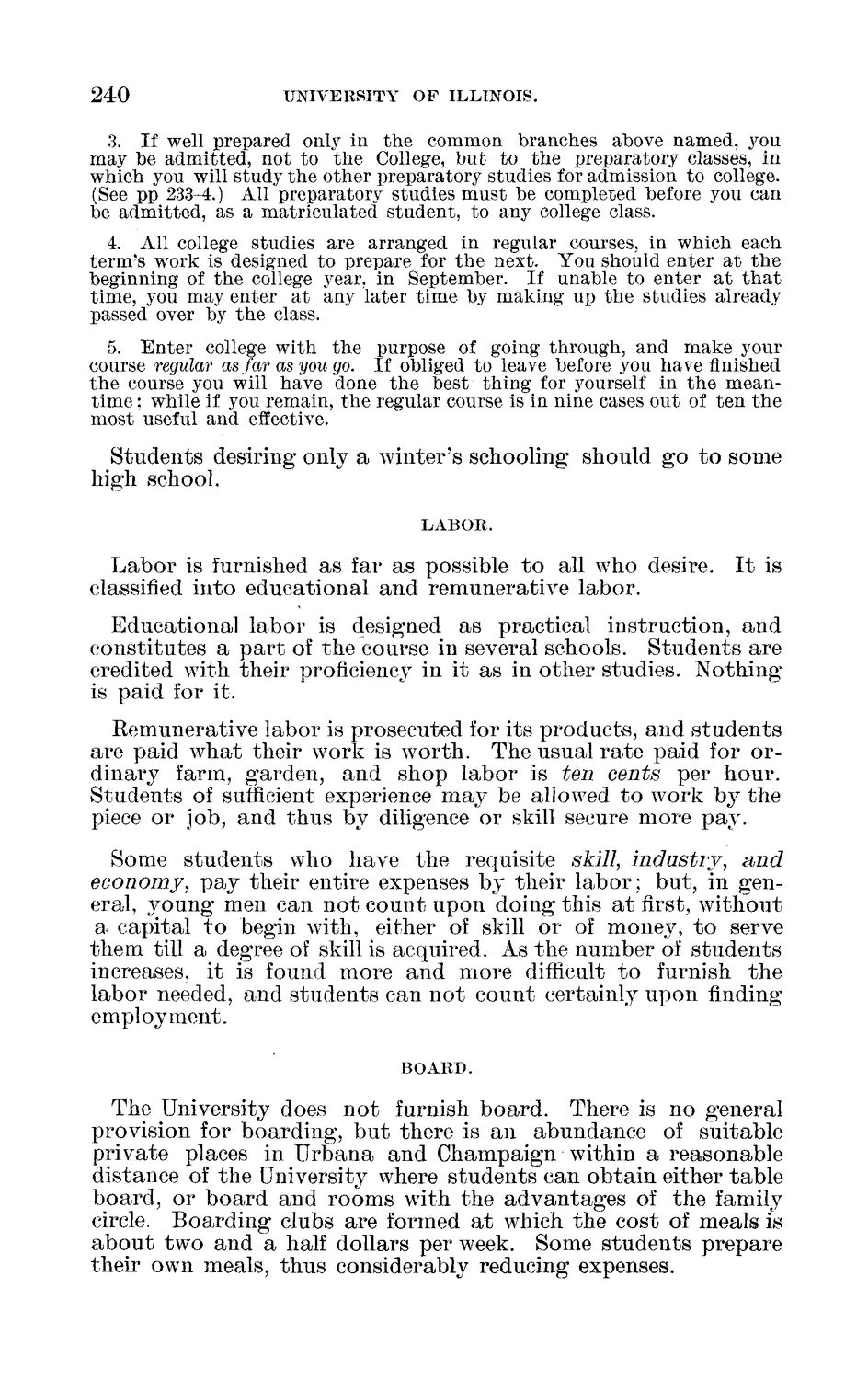| |
| |
Caption: Board of Trustees Minutes - 1890
This is a reduced-resolution page image for fast online browsing.

EXTRACTED TEXT FROM PAGE:
240 UNIVERSITY OF ILLINOIS. 3. If well prepared only in the common branches above named, you may be admitted, not to the College, but to the preparatory classes, in which you will study the other preparatory studies for admission to college. (See pp 233-4.) All preparatory studies must be completed before you can be admitted, as a matriculated student, to any college class. 4. All college studies are arranged in regular courses, in which each term's work is designed to prepare for the next. You should enter at the beginning of the college year, in September. If unable to enter at that time, you may enter at any later time by making up the studies already passed over by the class. 5. Enter college with the purpose of going through, and make your course regular as far as you go. If obliged to leave before you have finished the course you will have done the best thing for yourself in the meantime : while if you remain, the regular course is in nine cases out of ten the most useful and effective. Students desiring only a winter's schooling should go t o some high school. LABOR. L a b o r is furnished as far as possible t o all who desire. I t is classified into educational a n d remunerative labor. Educational labor is designed as practical instruction, and constitutes a p a r t of the course in several schools. Students are credited with their proficiency in it as in other studies. Nothing is paid for it. Eemunerative labor is prosecuted for its products, and students are paid what their work is worth. The usual r a t e paid for ordinary farm, garden, and shop labor is ten cents per hour. Students of sufficient experience m a y be allowed t o work by the piece or job, and t h u s by diligence or skill secure more pay. Some students who have t h e requisite skill, industry, and economy, p a y their entire expenses by their l a b o r ; but, in general, y o u n g men can n o t count upon doing this a t first, w i t h o u t a capital t o begin with, either of skill or of money, t o serve them till a degree of skill is acquired. As the number of students increases, it is found more and more difficult t o furnish t h e labor needed, and students can n o t count certainly upon finding employment. BOARD. The University does n o t furnish b o a r d . There is no general provision for boarding, b u t there is an abundance of suitable private places in U r b a n a and Champaign within a reasonable distance of the University where students can obtain either t a b l e board, or b o a r d and rooms with the a d v a n t a g e s of the family circle. Boarding clubs are formed a t which t h e cost of meals is a b o u t two and a half dollars per week. Some students prepare their own meals, t h u s considerably reducing expenses.
| |